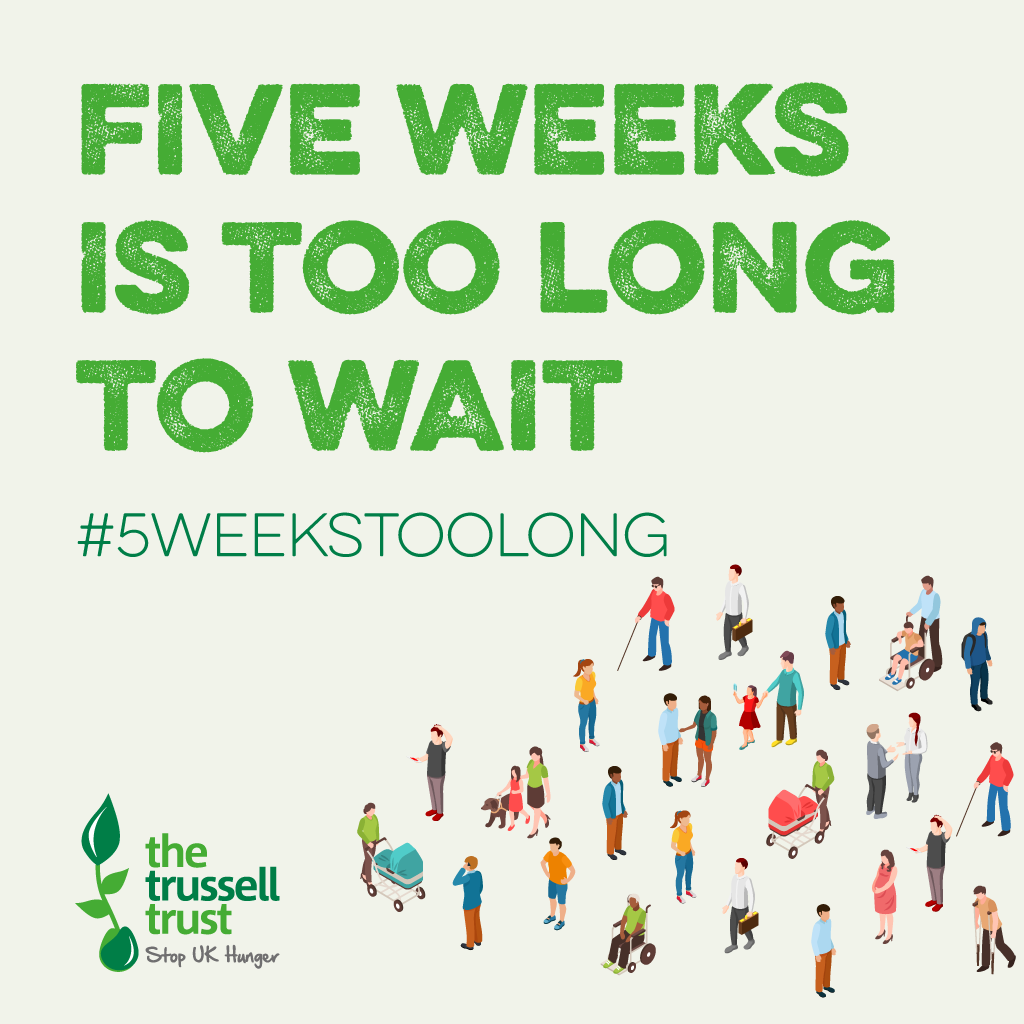A blog post by
Adam Butler
Senior Public Policy Advocate at StepChange
‘Imposing deductions on an income that was already the bare minimum to live on made me feel desperate and less than human.’
This is what Chris*, who had been forced to pawn his possessions, told StepChange when people who have sought debt advice with the charity were asked about their experiences of deductions from benefits. He’d been forced to pawn his possessions because deductions – fixed repayments of outstanding debts – reduced the support he received so dramatically.
There is now strong evidence the five week wait for Universal Credit, created because the first payment is made one month after application in arrears (plus one payment processing week), is causing hardship and https://www.trusselltrust.org/2019/04/25/record-1-6m-food-bank-parcels/ for emergency food parcels.
The current fix doesn’t work
As the consequences of the wait have become clear, the government has sought to mitigate the issue – reducing the waiting period from six to five weeks and introducing a two-week ‘run-on’ of Housing Benefit.
But the government has highlighted particularly the availability of advance payments. Advances allow people applying for Universal Credit to get a quick payment, up to the full amount of their expected monthly award, which must be repaid from subsequent monthly payments.
The problem with advances is that they create debt that must be repaid through subsequent deductions from payments, often simply replacing short-term with long-term hardship.
Repayments are often unaffordable
The current system of deducting money from Universal Credit to repay debts like advances operates largely automatically: repayments are taken at a fixed rate regardless of affordability, up to 40% of the Universal Credit standard allowance (this will be reduced to 30% from October this year).
That means someone may have up to £160 (depending on their household) taken from their award each month. Applying for help is often a signal that someone has exhausted their own financial resources as well as other avenues of support. For those in financial hardship, amounts much less than £160 are more than they can afford.
In StepChange’s research, over two-thirds of those who had a deduction in place said that it had caused them hardship. But the real impact of deductions comes across in people’s experiences.
Helpless, hopeless, forced to use a food bank
Clients were forced to ask for help from family and friends and request food vouchers from local crisis services. One person said that the system had made them scared to buy food. People were budgeting down to pennies and still not able to afford essentials like being able to eat or buy warm clothing.
The horrendous impact of hardship linked to deductions on people’s mental and physical health was clear. People referred to depression, panic attacks and struggling with suicidal thoughts. Others said they felt trapped, worthless and like a criminal. Words like ‘helpless’ and ‘hopeless’ recurred. Anxiety was common and people were ashamed at having to ask for help or not being able to provide for their children.
Automatic deductions to repay debts can be justified in a minority of cases as a last resort, for example to help people stay in their home or to prevent disconnections of essential utilities. Most deductions are not made for this reason, however, and much more flexibility could be shown in repayment.
What’s the solution?
The Department for Work and Pensions can do much better at giving people sufficient notice of deductions (at least 28 days), referring them to free debt advice and giving them the opportunity to negotiate affordable repayments rather than setting fixed rates. The Department should also incorporate industry standard affordability assessments, drawing on best practice in the debt advice sector, so that debts are collected in a sustainable way.
But these problems ultimately show why advances cannot be the answer to the five-week wait. Creating debt carries with it problems that cannot be avoided entirely.
That’s why StepChange supports the Trussell Trust’s #5weekstoolong campaign to end the five-week wait. There are a few ways this could be achieved. In the short-term, the Department for Work and Pensions should replace advances with grants, at a minimum for those who are experiencing hardship. In the longer term, there are a number of options to bring forward the first Universal Credit payment, like backdating the first assessment period.
Ending the five-week wait would substantively address an unnecessary driver of financial problems and hardship. It would also be a first step in revisiting values and assumptions that have underpinned a series of poor design decisions in Universal Credit. Whatever else the social safety net is designed to be, it should be a source of help, not a driver of debt and hardship.
*name changed



